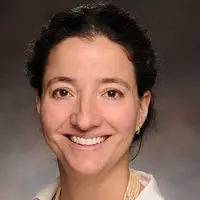RESEARCH TRIANGLE PARK—RTI International and the University of North Carolina Gillings School of Global Public Health announced today that research grants from the Initiative to Maximize Partnerships and Catalyze Teamwork (IMPACT), a new seed fund designed to develop deep research expertise in environment and health technical areas, have been awarded to three project teams with representatives from each institution. Grants will be up to $250,000 per project.
“We are delighted to announce the selection of the research projects and researchers who will receive these IMPACT seed funds,” stated Jacqueline Olich, senior director, University Collaborations. “Working together, RTI and UNC have the potential to develop a powerhouse reputation, beginning with environment and health research.”
The three selected research projects are: “Children’s Environmental Solutions Study (CHESS); Toxicity of Complex Aerosols from Wood Burning Cook Stoves; and Surveillance, Modeling, Analytics, and Risk Assessment Tool for Evidence-Responsive Antimicrobial Resistance Management (SMARTER-AMR).
Descriptions of each project, including the project researchers, follow:
Children’s Environmental Solutions Study (CHESS) Team: Rebecca Fry, PhD (UNC Gillings), and Keith Levine, PhD (RTI), will serve as co-principal investigators. The inter-institutional team is comprised of UNC: Tracy Manuck, MD, Kun Lu, PhD, and graduate research assistant, Martha Scott Tomlinson; RTI: Chamindu Liyanapatirana, PhD, Miranda Jane De Boskey, Scott Shone, PhD, Lisa Gehtland, MD, Eric Otto Johnson, PhD, and Christina Markunas, PhD. Toxic metals are polluting the environment in North Carolina from both geogenic sources as well as industry-derived contamination; preliminary work suggests that these metals are likely harming pregnancies and the developing fetus. The need for a minimally-invasive way to assess children’s exposure to environmental contaminants exists. The project will focus on optimizing and streamlining the utilization of dried blood spots as a critical resource for exposure and biomarker assessment. The team will leverage the ongoing study, Environment, Perinatal Outcomes, and Children’s Health (EPOCH), based at UNC’s high-risk pregnancy clinic that includes women from throughout North Carolina.
Toxicity of Complex Aerosols from Wood Burning Cook Stoves: William Vizuete, PhD (UNC Gillings), and Prakash Doraiswamy, PhD (RTI), will be the co-principal investigators. The inter-institutional team consists of UNC: Karsten Baumann, PhD, and Jason Surratt; RTI: Jean Kim, PhD, and Ryan Chartier. In low- and middle-income countries (LMICs) exposure to wood burning cookstoves emissions causes 2.8 million premature deaths. Emissions from cookstoves consist of airborne particulate matter (PM), various volatile organic compounds (VOC), and other gases that are harmful to human health. These emissions, when released into the ambient environment, can undergo photochemical transformations. While many epidemiological and toxicological studies have focused separately on the adverse health effects of exposures either to gas-phase pollutants or PM, much less is known about the combined effects and their interaction with other pollutants. The proposed study seeks to gather data from fresh and photochemically aged particles/gasses to better understand the scientific drivers of health impacts from cookstove emissions, thereby laying the foundation to inform field studies that will drive intervention and policy changes.
Surveillance, Modeling, Analytics, and Risk Assessment Tool for Evidence-Responsive Antimicrobial Resistance Management (SMARTER-AMR): Jill Stewart, PhD (UNC Gillings), and Elisabetta Lambertini, PhD (RTI), will serve as co-principal investigators for this project. The inter-institutional team is comprised of UNC: Mark Sobsey, PhD, Jamie Bartram, PhD, Mike Fisher, PhD, Emanuele Sozzi, PhD, Margie Mazzarella, and doctoral student Alyssa Grube; RTI: Kasey Jones, Linda Andrews, Anna Aceituno, Jen Wellard, Sarah Rhea, DVM, PhD, Justine Allpress, Josh Levy, Donal Bisanzio, PhD, Breda Munoz, PhD, and Juliana Ruzante, DVM, PhD. Antimicrobial resistance (AMR) poses a critical and growing threat to global health. The “One Health” approach—that is, understanding the interconnected roles of people, animals, and the environment—is vital to combating the emergence and spread of AMR. However, a lack of or poorly integrated surveillance and monitoring data have made it difficult to produce evidence needed to identify and address critical AMR sources, hot-spots, and exposure routes; conduct meaningful risk assessments; or prioritize potential management options. The team seeks to develop and pilot the first integrated and scalable regional One Health monitoring, analysis, and decision support tool designed for local actors and policy makers who need to assess AMR hazards and prioritize interventions to control risk.
In order to be considered for these awards, the three selected research projects are interdisciplinary, ambitious, scalable and attractive for significant follow-on support from federal, foundation or industry agencies. Each team has one UNC Gillings lead and one RTI lead; the Gillings lead must have a primary faculty appointment at the Gillings School.
The IMPACT seed fund, jointed funded by RTI and UNC, will support the selected environment and health-related projects for a period of two years, beginning in 2019 and ending in 2021. IMPACT builds on a long history of collaboration between RTI and the UNC Gillings School of Global Public Health. The Initiative formed in 2017 and the seed fund was launched in May 2018.

RTI International Media Relations:
As an independent, scientific research institute with a mission to improve the human condition, RTI International is engaged by clients and partners to conduct evidence-based research and project implementation. We share our work in line with journalistic and scientific standards and maintain a record in RTI’s Newsroom.
RTI International is an independent, scientific research institute dedicated to improving the human condition. Our vision is to address the world's most critical problems with technical and science-based solutions in pursuit of a better future. Clients rely on us to answer questions that demand an objective and multidisciplinary approach—one that integrates expertise across social, statistical, data, and laboratory sciences, engineering, and other technical disciplines to solve the world’s most challenging problems.
For more information, visit www.rti.org.





